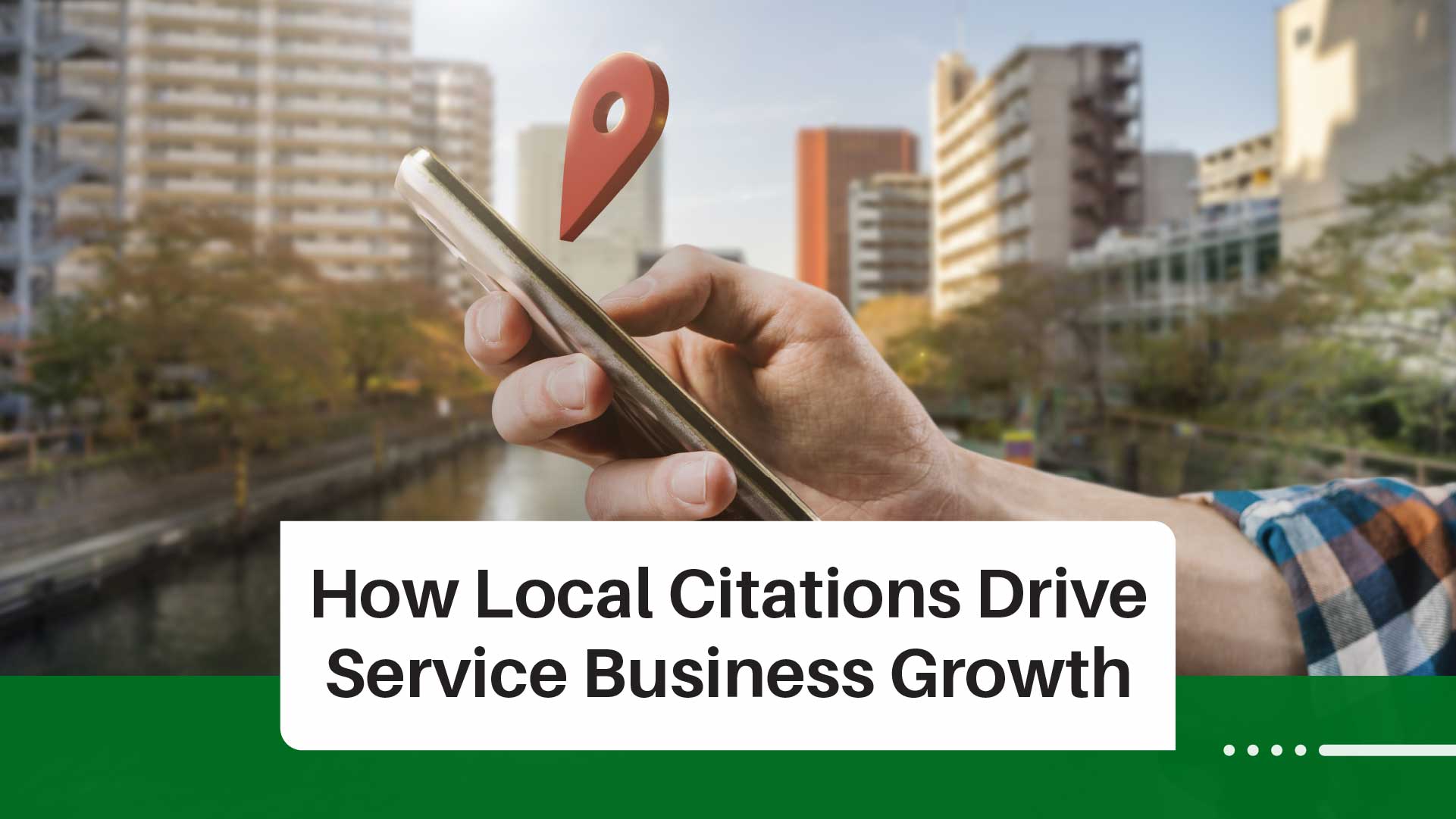Search engine optimization (SEO) is crucial for the success of any business, regardless of size or location. At a high level, on-page SEO optimizes your website’s content and structure. In contrast, off-page SEO focuses on the actions and factors outside your website that can impact its visibility and ranking in search engine results pages (SERPs). This post will explore the importance of off-page SEO and how it can benefit your rural small business.
Difference Between On-page SEO and Off-page SEO
As I mentioned before, on-page SEO refers to optimizing individual web pages to rank higher on the SERPs and earn more relevant traffic from them. Off-page SEO is the optimization that takes place outside your website, such as building links from other websites, also called backlinks and social media.
On-page SEO includes the following elements:
- Title Tags and Meta Descriptions: These tags provide summaries of the content of a web page and help search engines understand what the page is about.
- Header Tags: These tags format text on a web page, which makes it more readable for users and search engines.
- Keyword Optimization: This involves researching and selecting relevant keywords to target and incorporating them into a web page’s content and meta tags.
- Content Quality and Relevance: The content on a web page should be high-quality, relevant to the user’s search query, and provide value to the user.
- URL Structure: The URL structure of a website should be simple and descriptive, making it easy for search engines and users to understand what the page is about.
- Image Optimization: This includes using descriptive file names and alt tags for images, which help search engines understand what the images are about.
Off-page SEO includes the following elements:
- Link Building: This involves acquiring links or backlinks from other websites to your website. It helps to improve your website’s authority and to rank in search engines.
- Social Media Marketing: This involves promoting your website and content on social media platforms to build brand awareness and drive traffic to your small business website.
- Online Reputation Management: This involves monitoring and managing your online reputation by responding to negative reviews and feedback and promoting positive content about your brand.
- Influencer Outreach: This involves partnering with influential individuals in your industry or area to promote your brand and drive traffic to your website.
Off-Page SEO: A Deeper Explanation
When we talk about off-page SEO, we’re talking about measures taken outside your rural small business website to improve your search engine rankings.
Off-page SEO is mainly concerned with establishing relationships with other websites. The key is that you don’t want just backlinks but relevant and high-quality ones. These backlinks help rural small business websites like yours increase search engine rankings for your geographical area. Search engines utilize backlinks to assess the quality of web pages.
Getting backlinks is easy if other websites link to yours within their content without you having to do any work. These typically come from places where they saw the value in you your content and chose to link back to you.
Making an effort to generate backlinks manually takes considerable dedication. Instead of depending just on the link that another website or a page has organically created, you should actively aim to expand the number of external links that drive others to your rural small business website.
Regarding the search engine ranking of any site, the quality of the backlinks is essential. Numerous studies show that high-quality links can transfer a website’s value to another. Simply put, high-quality link aids in increasing your website’s authority. A variety of things determines a link’s value. Here are a few examples of these variables:
- Topical relevance
- The connected page’s authority
- The linking site’s HTTP status
Off-page SEO involves more than just building links. The above examples are unlinked brand references, including guest blogging, social media, NAP (name, address, and phone number) citations, and influencer marketing. Off-page SEO is the best option if you want your rural website to increase in search engine rankings for specific keywords.
Why is Off-Page SEO Important?
The importance of off-site SEO can’t be overstated when it comes to achieving higher rankings for competitive keywords. You have to build your website’s authority if you want to rank higher on the SERPs for the keywords you are targeting. Establishing a site’s authority necessitates utilizing off-site SEO tactics.
Through off-page SEO, Google and other search engines can learn a lot about your website’s products and services. Your digital marketing strategy must include off-page SEO optimization as a crucial aspect. It will help boost your website’s trustworthiness, relevance, popularity, and authority among users and search engines.
The pandemic resulted in a significant shift in how we interact with businesses; before, people typically preferred to go into a brick-and-mortar store, whereas now, most people look for goods and services online. Even if you have great items to offer, it will be very difficult for you to connect to your prospective clients if your rural small business website does not appear high in search engine results for the keywords prospects are using to find you. Off-page SEO will play a vital role here, it will not only help you build a solid reputation, but it will also make sure that the right people are aware of your rural business. As a result, your website receives a greater volume of targeted visitors that is more likely to result in sales or conversions.
To build your business and generate revenue with off-site SEO, you need to use various strategies that increase your authority, reputation, and search engine ranks.
How to do Off-Page SEO
Now that we have established the importance of off-page SEO for your small business website’s performance, we can go into the details of how to enhance off-page SEO.
1. Link Building
When it comes to link building, you want to think about them as votes for your rural small business website. The greater the number of votes you can get, the better your chances of being ranked on the search engines. Conversely, the fewer votes you receive, the more difficult it will be for you to persuade Google, Bing, or DuckDuckGo that your website is reputable and reliable.
You have to have backlinks to increase the number of pages and websites that will endorse your site or vote for you.
There are many types of backlinks you can obtain, such as:
- Natural links: The term “natural link” refers to organically emerging relationships when editorial publications or consumers make mention of your brand.
- Built links: A “built link” requires effort, such as contacting publishers to request link attribution or acknowledgment.
When gaining backlinks, it is crucial to follow white hat SEO practices, as tactics such as spamming forums and comment sections with links to your website may result in a Google penalization.
2. Social Media Marketing
In today’s mobile-first society, over 9 out of 10 internet users are on social media and use it every month. (Source: Statista)
The impact of social media has shaped us for the better part of the past two decades. It doesn’t matter if you’re looking for knowledge about anything specific; the internet, search engines, and social media are all good places to look. Just think how often people use social media as a substitute for traditional search engines.
Although social media does not directly impact search engine rankings, the links shared across the various platforms help spread awareness of a rural small business. In other words, when more people share your content, it generates social signals that indicate your posts are helpful to your target market.
Rural small businesses increasingly turn to social media to provide excellent customer service. Most of your clients may choose social media as their primary method of contacting you about customer service issues or to ask you questions not answered on your website. Therefore use social media as a channel for brand awareness and marketing that future and existing clients will come across during their sales process.
Genuine social media participation and sharing can increase the attention paid to your rural small business. An increase in the amount of attention paid leads to an increase in the number of links and mentions. These and other off-page SEO elements directly impact your search engine rankings.
3. Content Marketing
With the help of content marketing, you can engage and target your local audience by providing them with content that addresses their pain points.
In addition to on-page content marketing activities such as blogs and articles, you may also use off-page content marketing strategies such as guest blogging, surveys, and reports to drive traffic to your website.
These are a few of the best approaches, and the idea is fantastic for increasing traffic to your website, generating new leads, and improving your search engine ranking.
There are several advantages to guest posting, such as:
- You are opening communication channels to a previously inaccessible section of your target market.
- Having your content published on a highly authoritative domain is also valuable because of the backlinks it will generate.
- Increasing your site’s traffic is a significant component of your rankings.
4. Influencer Marketing
As an alternative to traditional marketing, you should consider and implement influencer marketing as a fantastic off-page SEO approach.
Building ties with content creators or with individual influencers with a large following base comparable to your target audience can help you create a reputation and visibility for your website and brand in a short time.
It is often more cost-effective and yields a faster return on investment to ask an influencer to comment on, review, or provide feedback on one of your goods or services in favor of a backlink to your website than traditional paid advertising.
5. Listing and Forums
Discover where your target audience is talking about your product online and join in. Google actively looks at online communities and loves seeing meaningful conversations. Therefore, feel free to respond to messages, answer concerns, and share your thoughts to strengthen ties with the community.
Create a detailed profile and incorporate links in your signature to your website so that when they appear next to the comment, they are seen by users and, more importantly, Google.
Key Takeaways
Off-page SEO is just as important as on-page SEO regarding ranking for rural small businesses. You must engage in both activities to be effective with your SEO marketing.
When it comes to link building, resist taking the easy way out and look for links from hard-to-reach locations. The higher the difficulty in obtaining a link, the greater the link’s value.
Obtaining thousands of connections and rising rankings was quite simple, but nowadays, you must pay more attention to your content’s quality to succeed. The best advice I can give you is to first concentrate on creating an excellent website with awesome content that answers people’s questions, then work on off-page SEO to develop links that will increase your rankings or hire a reputable SEO company that specializes in rural small businesses to help you with it.





